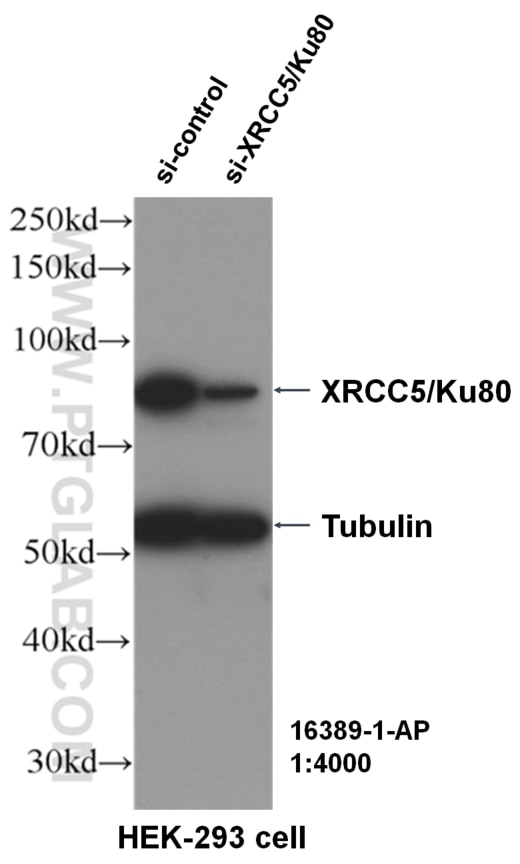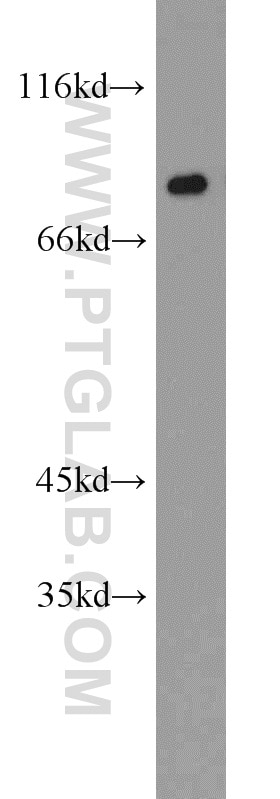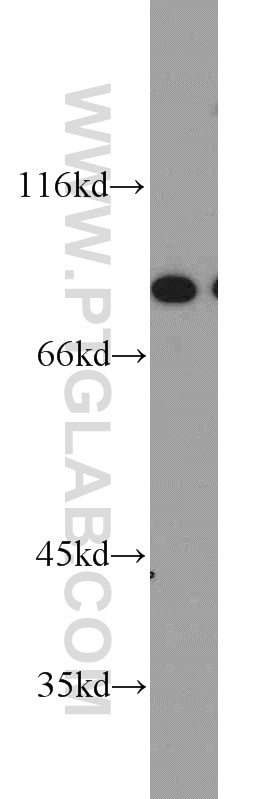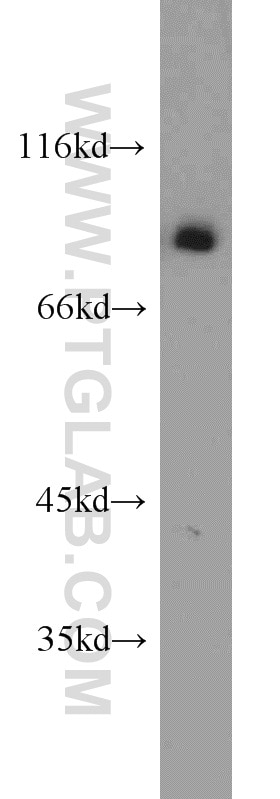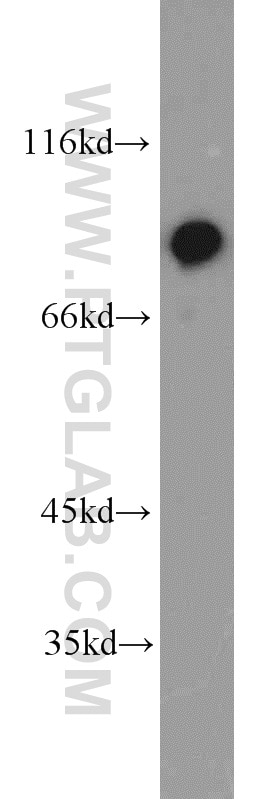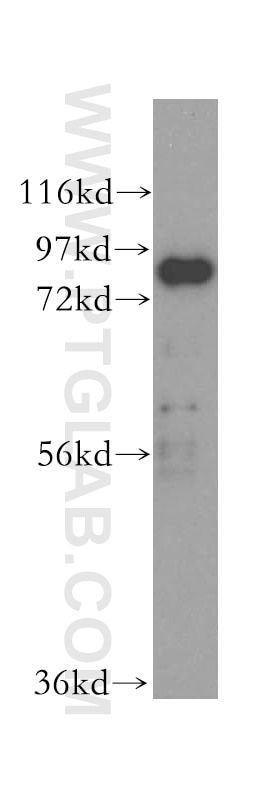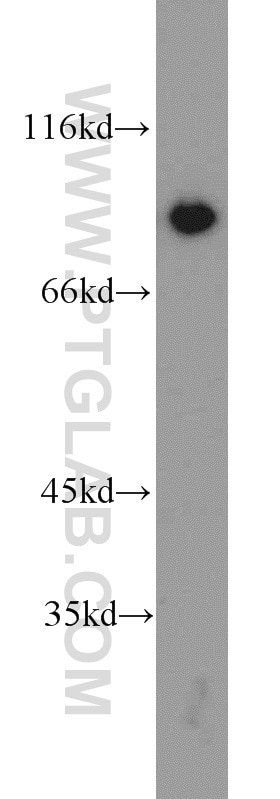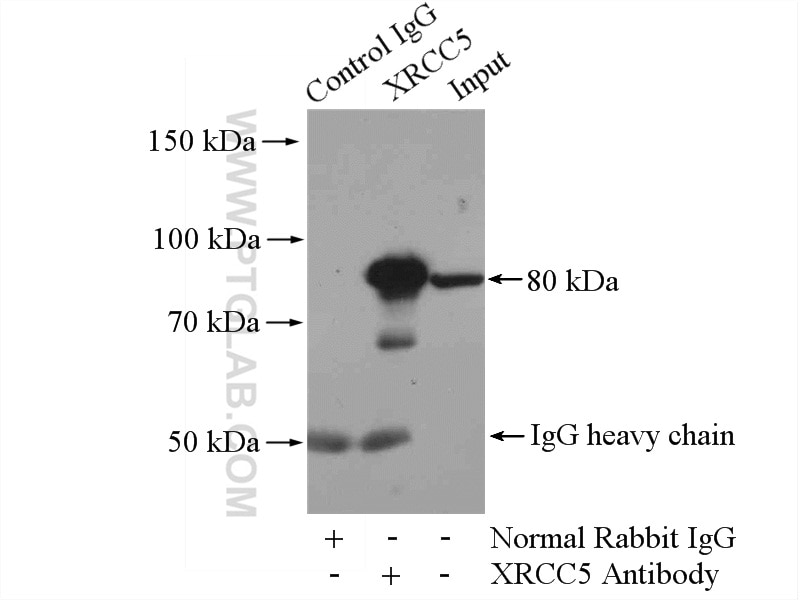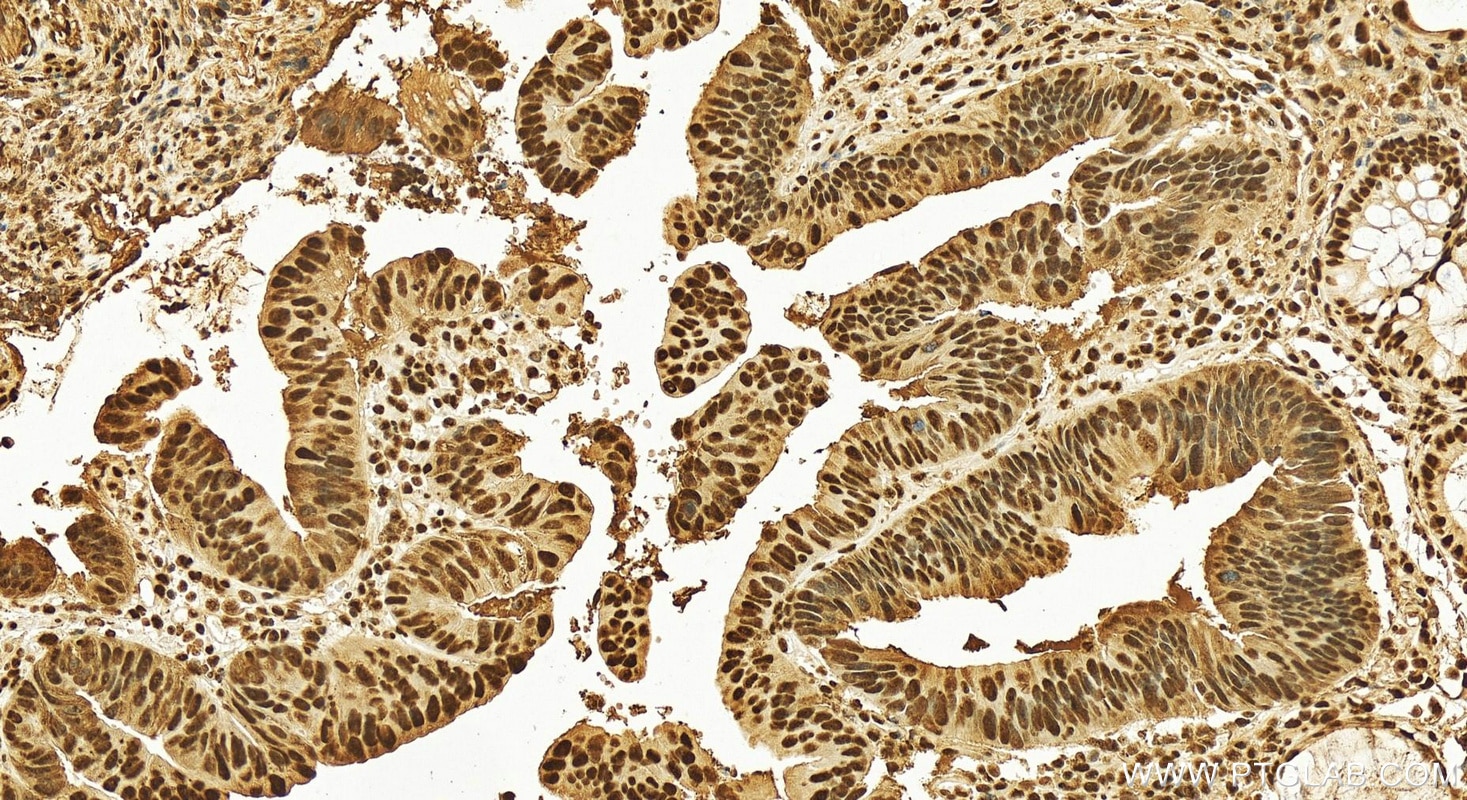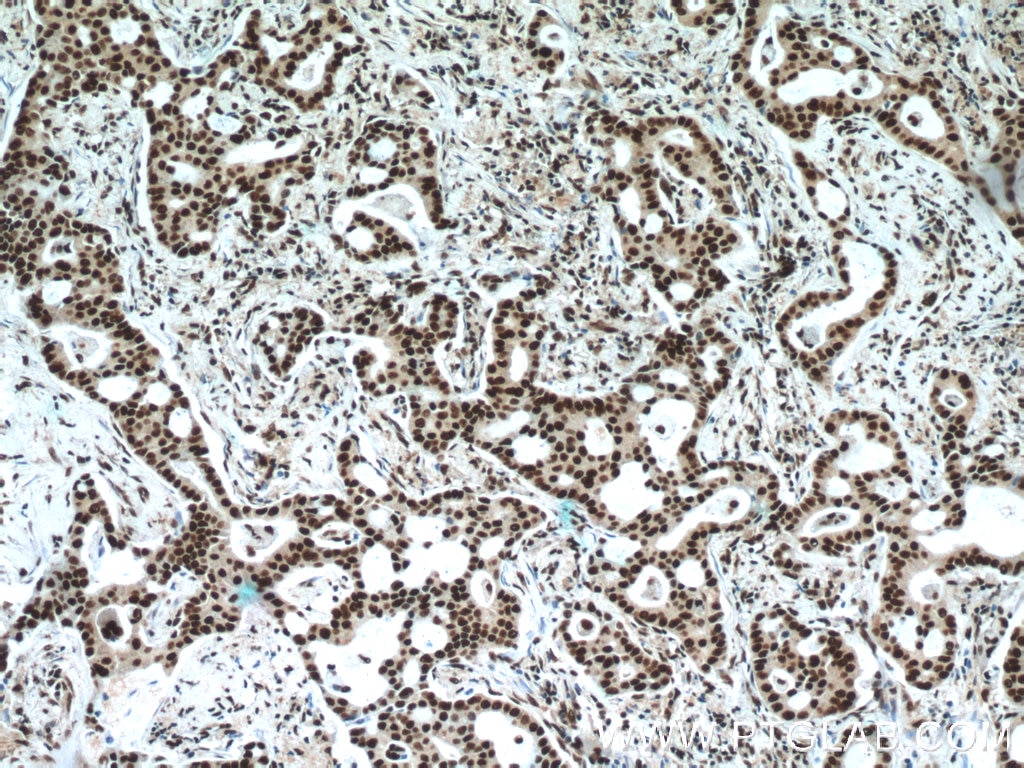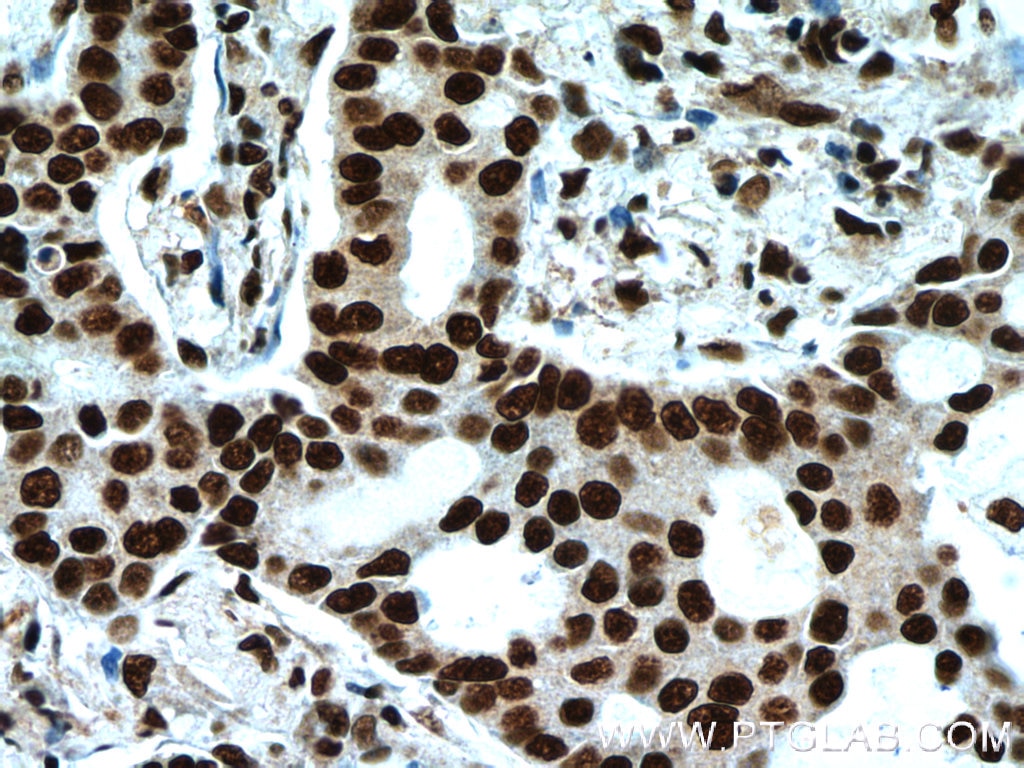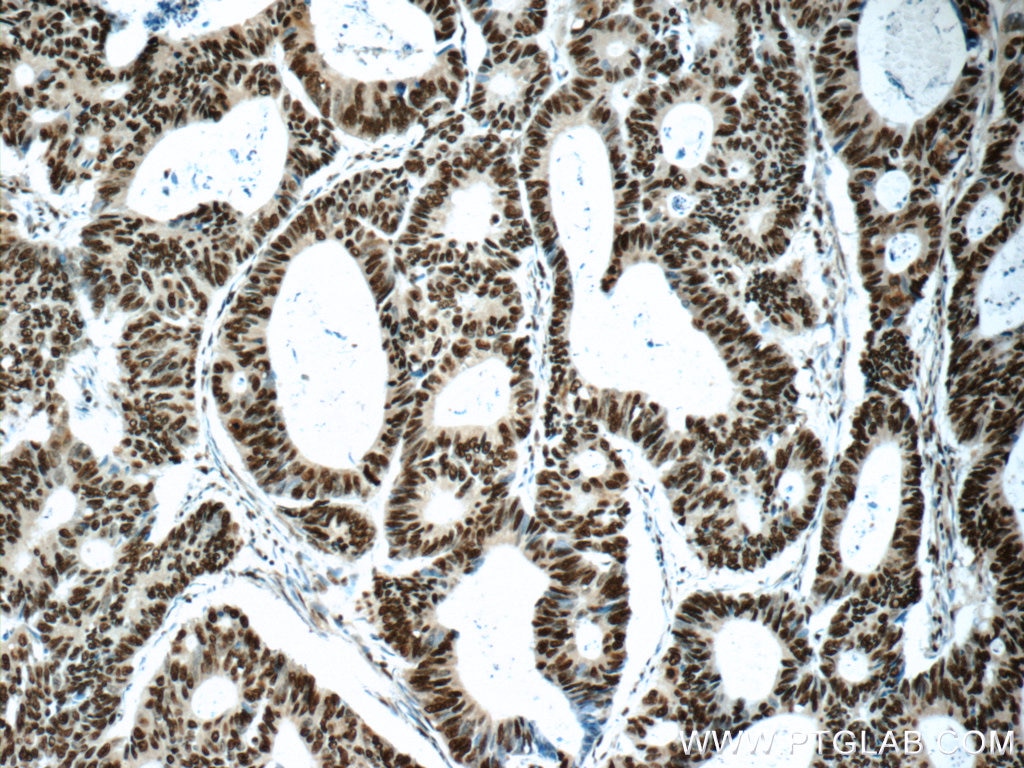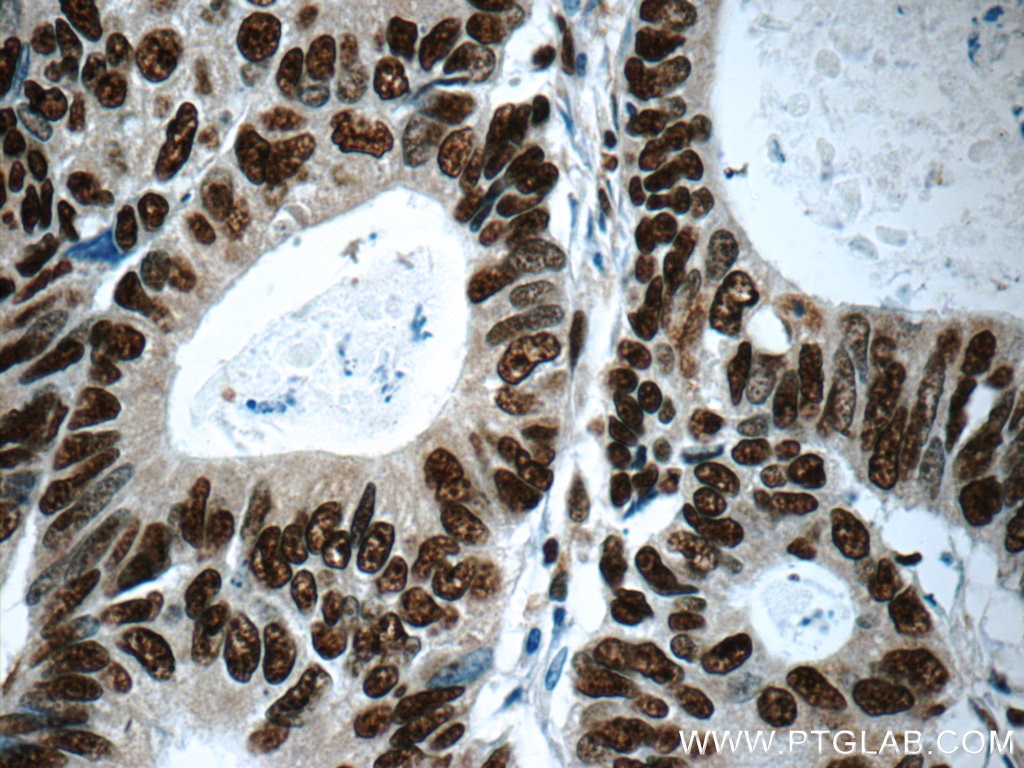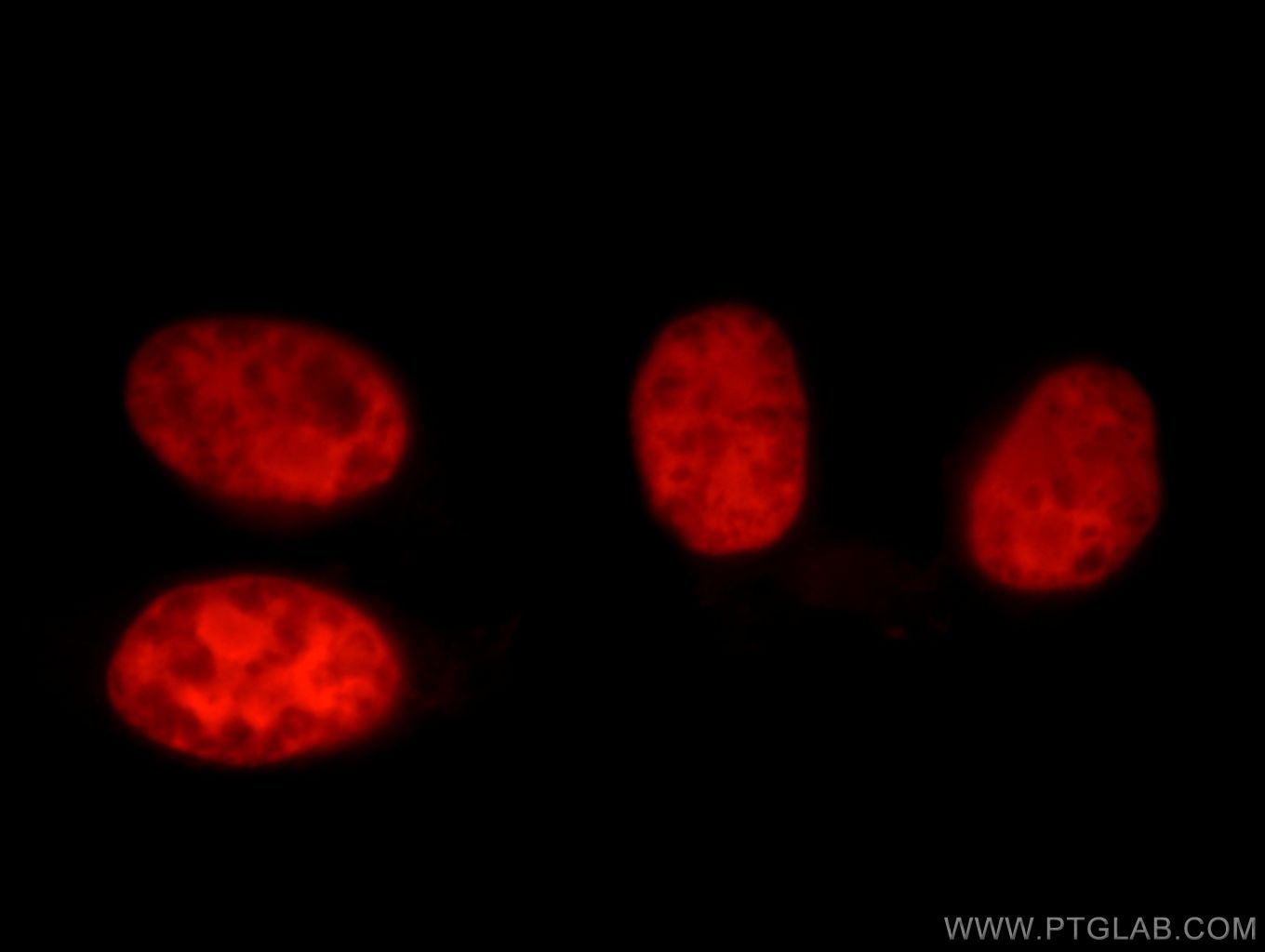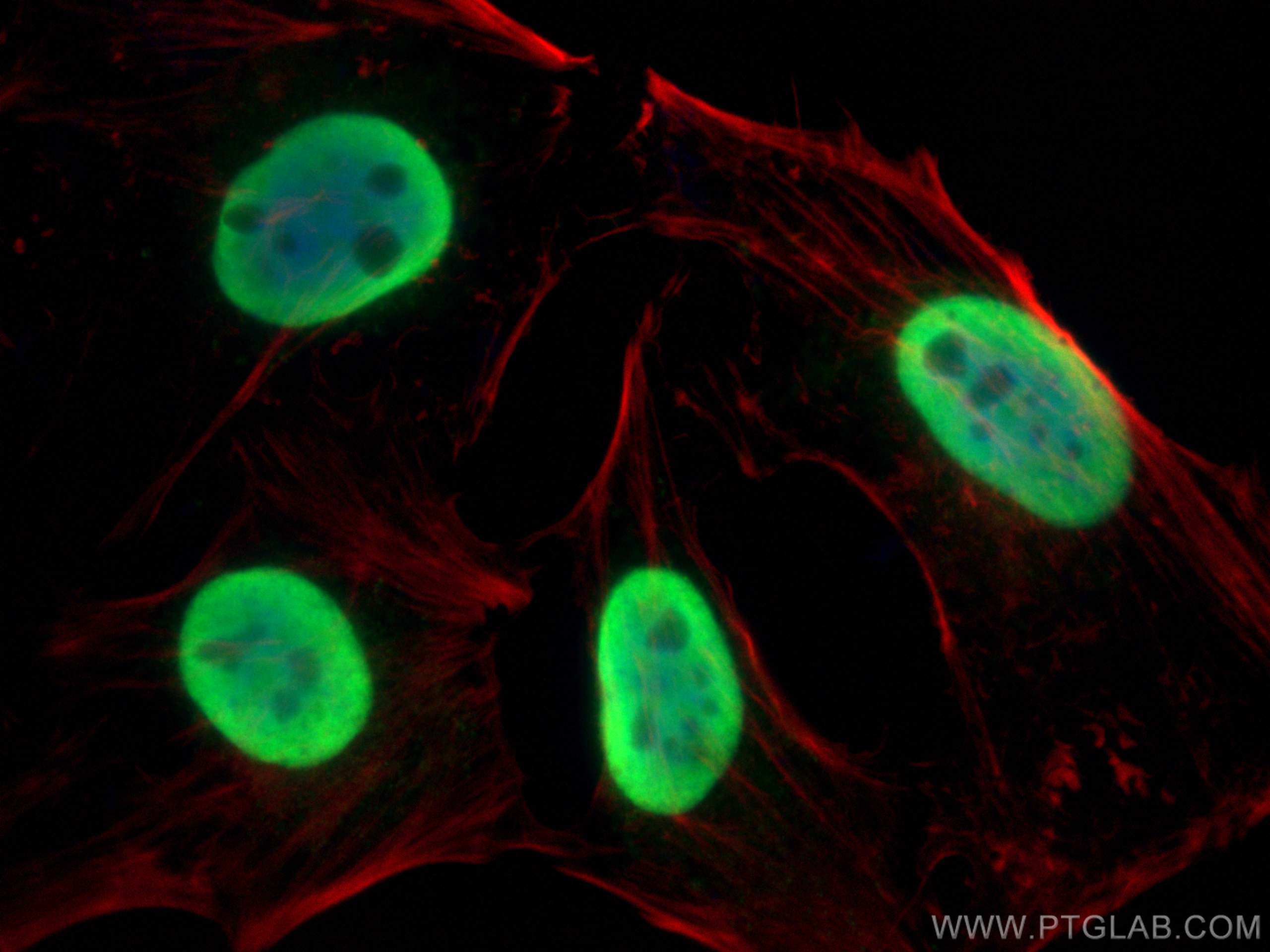Tested Applications
| Positive WB detected in | HepG2 cells, K-562 cells, HEK-293 cells, A431 cells, human liver tissue, HeLa cells |
| Positive IP detected in | HEK-293 cells |
| Positive IHC detected in | human colon cancer tissue, human lung cancer tissue Note: suggested antigen retrieval with TE buffer pH 9.0; (*) Alternatively, antigen retrieval may be performed with citrate buffer pH 6.0 |
| Positive IF/ICC detected in | HeLa cells, HepG2 cells |
Recommended dilution
| Application | Dilution |
|---|---|
| Western Blot (WB) | WB : 1:500-1:2000 |
| Immunoprecipitation (IP) | IP : 0.5-4.0 ug for 1.0-3.0 mg of total protein lysate |
| Immunohistochemistry (IHC) | IHC : 1:600-1:2400 |
| Immunofluorescence (IF)/ICC | IF/ICC : 1:400-1:1600 |
| It is recommended that this reagent should be titrated in each testing system to obtain optimal results. | |
| Sample-dependent, Check data in validation data gallery. | |
Product Information
16389-1-AP targets XRCC5/Ku80 in WB, IHC, IF/ICC, IP, CoIP, ChIP, RIP, ELISA applications and shows reactivity with human, mouse samples.
| Tested Reactivity | human, mouse |
| Cited Reactivity | human, mouse, pig |
| Host / Isotype | Rabbit / IgG |
| Class | Polyclonal |
| Type | Antibody |
| Immunogen |
CatNo: Ag9454 Product name: Recombinant human XRCC5 protein Source: e coli.-derived, PGEX-4T Tag: GST Domain: 384-732 aa of BC019027 Sequence: LDDLDMVAIVRYAYDKRANPQVGVAFPHIKHNYECLVYVQLPFMEDLRQYMFSSLKNSKKYAPTEAQLNAVDALIDSMSLAKKDEKTDTLEDLFPTTKIPNPRFQRLFQCLLHRALHPREPLPPIQQHIWNMLNPPAEVTTKSQIPLSKIKTLFPLIEAKKKDQVTAQEIFQDNHEDGPTAKKLKTEQGGAHFSVSSLAEGSVTSVGSVNPAENFRVLVKQKKASFEEASNQLINHIEQFLDTNETPYFMKSIDCIRAFREEAIKFSEEQRFNNFLKALQEKVEIKQLNHFWEIVVQDGITLITKEEASGSSVTAEEAKKFLAPKDKPSGDTAAVFEEGGDVDDLLDMI Predict reactive species |
| Full Name | X-ray repair complementing defective repair in Chinese hamster cells 5 (double-strand-break rejoining) |
| Calculated Molecular Weight | 732 aa, 83 kDa |
| Observed Molecular Weight | 80-83 kDa |
| GenBank Accession Number | BC019027 |
| Gene Symbol | XRCC5 |
| Gene ID (NCBI) | 7520 |
| RRID | AB_2257509 |
| Conjugate | Unconjugated |
| Form | Liquid |
| Purification Method | Antigen affinity purification |
| UNIPROT ID | P13010 |
| Storage Buffer | PBS with 0.02% sodium azide and 50% glycerol, pH 7.3. |
| Storage Conditions | Store at -20°C. Stable for one year after shipment. Aliquoting is unnecessary for -20oC storage. 20ul sizes contain 0.1% BSA. |
Background Information
There are at least two pathways for eukaryotes to repair DNA double-strand breaks: homologous recombination and nonhomologous end joining(NHEJ). The core NHEJ machinery includes XRCC4, DNA ligase IV and the DNA-dependent protein kinase complex, which consists of the DNA end-binding XRCC5/XRCC6 heterodimer and the catalytic subunit PRKDC. The heterdimer of XRCC5/XRCC6 enhanced teh affinity of the catalytic subunit PRKDC to DNA by 100-fold. Once the XRCC5/6 dimer association with NAA15, it can bind to the osteocalcin promoter and activate osteocalcin expression. The XRCC5/6 dimer acts as a negative regulator of transcription when together with APEX1. Some publised papers indicated that the MW of XRCC5 is 86kDa, while more papers suggested that XRCC5 is a 80kDa protein, as it was firstly introducted in publication. Thus, Ku80 and Ku86 are the same protein.
Protocols
| Product Specific Protocols | |
|---|---|
| IF protocol for XRCC5/Ku80 antibody 16389-1-AP | Download protocol |
| IHC protocol for XRCC5/Ku80 antibody 16389-1-AP | Download protocol |
| IP protocol for XRCC5/Ku80 antibody 16389-1-AP | Download protocol |
| WB protocol for XRCC5/Ku80 antibody 16389-1-AP | Download protocol |
| Standard Protocols | |
|---|---|
| Click here to view our Standard Protocols |
Publications
| Species | Application | Title |
|---|---|---|
Immunity Cytoplasmic DNA sensing by KU complex in aged CD4+ T cell potentiates T cell activation and aging-related autoimmune inflammation. | ||
Oncogene UBE2S, a novel substrate of Akt1, associates with Ku70 and regulates DNA repair and glioblastoma multiforme resistance to chemotherapy. | ||
Phytomedicine Kaempferol inhibits non-homologous end joining repair via regulating Ku80 stability in glioma cancer | ||
J Mater Chem B Hollow PtCo alloy nanospheres as a high-Z and oxygen generating nanozyme for radiotherapy enhancement in non-small cell lung cancer | ||
FEBS J Radiation resistance of cancer cells caused by mitochondrial dysfunction depends on SIRT3-mediated mitophagy |

